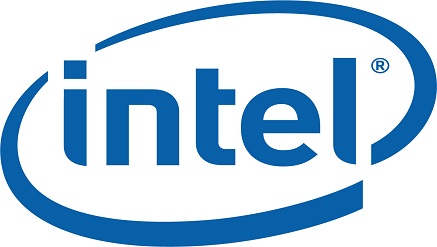E-Business
Intel Seeks to Reinvigorate PC Market with new Core Processors

Intel hopes it can breathe new life into the sagging personal-computer market with its newest line of processors. The Santa Clara, Calif.-based chips giant on Monday officially launched its fifth generation of Core processors for PCs and top-end laptops, offering higher performance, longer battery life and improved graphics capabilities from its fourth-generation chips.
The fifth-generation chips will round out Intel’s portfolio of new processors, joining the more on-the-go Core M line of chips, which launched in August for use in tablets, smaller laptops and 2-in-1 tablet-laptop hybrids.
The company also said Monday that its new and more powerful Cherry Trail processor for tablets is now shipping to customers and will be in new products in the first half of the year.
Intel’s announcement comes at the start of the 2015 Consumer Electronics Show in Las Vegas, where Intel and many other tech firms will be announcing new products. Expect new devices using the 14 new fifth-generation Core processors to be announced this week at CES, with even more powerful processors coming by midyear.
There’s a lot at stake for Intel with these new Core chips. The company’s processors power most of the world’s desktops and laptops, but sales of those devices have been in decline for years as more consumers use smartphones and tablets for their computing needs. Worldwide PC shipments were down 1.7 percent in the third quarter of 2014 from a year ago, according to researcher IDC. Intel’s new line of chips could convince more people to upgrade their PCs or consider buying a high-performance laptop or desktop for some of the heavy-lifting computing jobs mobile devices still can’t do as well — such as graphics processing for video games or video editing.
On top of that, Intel will be bundling the beefed-up chips with its new RealSense technology, which allows users to scan 3D objects, as well as the ability to wirelessly dock a PC. “They’re going to get a much better reception by putting these other interesting features into the platform,” said Patrick Moorhead, president of Moor Insights and Strategy, which could help bring in more PC customers.
While Intel uses the new Core processors to make desktops more enticing, it’s rolling out Core M to encourage customers to update their laptops. Core M — which is now in portable devices from Acer, Dell, Lenovo and others — allows device makers to build computers that are thinner, lighter, more power efficient and don’t need a fan.
The new Core family, Core M and Cherry Trail use a 14-nanometer architecture, nicknamed Broadwell, which Intel has been working on for years and has struggled to deliver to the market due to problems manufacturing the advanced technology.
Still, Intel remains ahead of the pack in the race to release ever more advanced processors by shrinking the geometries of chips. Moving to 14 nanometers, or billionths of a meter, from Intel’s prior 22-nanometer chip, dubbed Haswell, allows PC makers to build more powerful and thinner devices, thanks to Intel providing more transistors packed into smaller chips.
E-Business
Firm Warns of Blackmail from Alleged “Hackers”, “Law Enforcement” and “Hitmen”

Attackers are incorporating personal details like full names and phone numbers in scam emails to appear credible and induce panic among victims. Scammers may pose as hackers with compromising data, law enforcement agencies issuing fake summons, or even hired assassins demanding ransoms. These threats often leverage techniques to evade email filters and other security solutions, underscoring the need for heightened vigilance.

In the most common variant, scammers impersonate hackers who claim to have infiltrated the victim’s devices. They allege to have access to cameras, microphones, browsing history, and sensitive files, often threatening to release explicit content captured via webcam or screen recordings supposedly taken whilst the victim was watching adult content.
Demands typically involve hundreds of US dollars in cryptocurrency, with promises to delete the data upon payment. These emails may include detailed narratives of the supposed breach, including explanations of malware types and advice on better security – ironically, tips that align with genuine best practices.
Another scam twist involves fraudsters posing as hired hitmen. In this scheme, the sender claims a contract has been placed on the victim’s life but offers to spare them if they outbid the original payer.
The email includes a cryptocurrency wallet for the ransom, framing the scammer as a “merciful” intermediary. This variant relies on fear rather than embarrassment, promising the victim’s life in exchange for payment.
Another prevalent tactic sees scammers masquerading as law enforcement agencies, such as Europol. Victims receive emails with attached PDF or DOC files containing fake summonses accusing them of serious crimes like child exploitation, exhibitionism, or human trafficking.
These documents cite fabricated articles of legal codes, feature forged signatures and seals, and urge immediate contact via a provided email to “resolve” the matter. Upon response, the “authorities” demand paying fines to avoid prosecution, often leading to cryptocurrency transfers.
“To slip past protective solutions, scammers employ various evasion tactics. These include embedding the main threat in attachments to avoid body text scanning, mixing letters from different alphabets (e.g., replacing Latin letters with similar Cyrillic ones), adding diacritical marks via HTML codes, varying fonts in HTML markup, inserting random symbols or punctuation between words, and hiding text in invisible HTML tables.
“Such “noise” makes detection by security solutions more difficult, as each email variant appears unique while remaining readable to humans. For example, cryptocurrency wallet addresses might be obscured with HTML entities to evade filters without hindering the victim’s ability to copy them,” comments Anna Lazaricheva, Senior Spam Analyst at Kaspersky.
E-Business
Nigeria to Unveil Single-Entry Emergency Passport for Citizens Abroad

Nigeria Immigration Service (NIS) is developing a Single-Entry Emergency Travel Passport (STEP) to replace the current Emergency Travel Certificate (ETC).

STEP will aid stranded Nigerians abroad; aligns with broader immigration and border control reforms
Comptroller General Kemi Nanna Nandap announced the initiative this week during a policy meeting organized in partnership with the French government.
Nandap explained that the STEP will serve as a temporary travel document for Nigerian citizens abroad whose passports have expired, been lost, or stolen, enabling them to return home safely.
The new document is part of broader immigration reforms aimed at strengthening identity management and border control in line with global standards.
Since May 2025, Nigerian authorities have been pursuing wide-ranging immigration reforms focused on expatriate management and the visa system.
The measures seek to prevent misuse of expatriate quotas, encourage skills transfer, and streamline immigration procedures through digitization.
The reforms also reinforce the fight against human trafficking and migrant smuggling through tighter border control and better-coordinated migration management.
In October, authorities launched nationwide inspections targeting undocumented foreign nationals, particularly those who had overstayed their visas or violated entry conditions.
Offenders face sanctions such as overstay fines, deportation, and possible future entry bans.
The new STEP will be issued at designated Nigerian embassies and consulates abroad and will be valid for a single entry only.
E-Business
NITDA Highlights Economic Impact, Digital Transformation Gains, as ICEGOV 2025 Concludes in Abuja

The National Information Technology Development Agency (NITDA) has hailed the successful conclusion of the 18th International Conference on Theory and Practice of Electronic Governance (ICEGOV 2025) as a landmark moment for Nigeria’s digital economy aspirations, citing its direct contribution to research excellence, global collaboration and the nation’s ongoing digital transformation agenda.

Hosted in Abuja under the patronage of President Asiwaju Bola Ahmed Tinubu, ICEGOV 2025 convened global experts for four days of rigorous debate, innovative research presentations, and high-impact partnerships, a convergence that NITDA says aligns closely with the President’s redefined priority area of accelerating economic diversification through industrialisation and digitisation.
The conference, a United Nations University (UNU-EGOV) initiative founded in 2007, brought together academia, industry leaders, civil society, development institutions and government actors to shape the future of electronic governance. This year’s edition placed Nigeria at the center of global digital discourse, showcasing the country’s rising intellectual and technological capacity.
A total of 151 scientific papers were submitted by 308 authors from 33 countries, with emerging economies accounting for 68% of participating scholars, a clear sign of the conference’s inclusive reach. Nigeria led global submissions with 102 authors, followed by Brazil, India, Portugal and Greece.
NITDA emphasised that this strong participation reflects the Agency’s decade-long investment in digital talent development, research funding and ecosystem strengthening, which are investments that are already translating into local and international recognition.
The conference also honoured outstanding research through its Best Paper Awards. Notably, Robert Ifeonu of the Central Bank of Nigeria earned the top award in the Research category for his paper “Micro-Transformation Framework for Public Sector Innovation: Catalysing Resilient, Outcome-Driven Digital Governance.” This, NITDA noted, underscores Nigeria’s emerging leadership in developing home-grown digital governance models capable of driving socio-economic impact.
In her closing remarks, Professor Delfina Soares, Director of UNU-EGOV, extended appreciation to NITDA Director-General, Kashifu Inuwa CCIE, for his early endorsement and strategic leadership in bringing ICEGOV to Abuja. She noted that the local partnerships and sponsorships facilitated by NITDA significantly enhanced the conference’s global value and strengthened Africa’s position in digital governance research.
Speaking on the event’s economic and strategic implications, NITDA affirmed that hosting ICEGOV 2025 delivered multiple layers of value, from boosting Nigeria’s reputation as a digital innovation hub to fostering partnerships that will stimulate new investments, research collaborations and capacity-building programmes.
The Agency added that insights and tools shared during the conference will further accelerate the actualisation of its digital transformation agenda, strengthen public sector efficiency and support the Federal Government’s commitment to economic diversification through digitisation and industrialisation. The knowledge exchange from ICEGOV, it said, will catalyse improved service delivery, enhanced regulatory frameworks and the deepening of Nigeria’s knowledge-driven economy.
As delegates departed Abuja carrying new research linkages and strategic commitments, NITDA reaffirmed its readiness to sustain the momentum, ensuring that Nigeria not only participates in global digital governance conversations but also shapes them.

 News1 day ago
News1 day agoPreventive, Silicon Valley Firm May Birth Genetically Engineered Babies

 E-Business1 day ago
E-Business1 day agoNigeria to Unveil Single-Entry Emergency Passport for Citizens Abroad

 E-Financial1 day ago
E-Financial1 day agoFG Seeks Fresh $500m World Bank Loan for MSMEs

 General News1 day ago
General News1 day agoCOVID-19 Vaccines may Help some Cancer Patients Fight Tumors

 Telecom1 day ago
Telecom1 day agoGlo Announces N1m Monthly Giveaway in New Trivia Game

 E-Business1 day ago
E-Business1 day agoNITDA Highlights Economic Impact, Digital Transformation Gains, as ICEGOV 2025 Concludes in Abuja

 E-Financial1 day ago
E-Financial1 day agoUBA Reaffirms Commitment to Empowering African Entrepreneurs

 E-Financial1 day ago
E-Financial1 day agoNDIC Now Better Positioned to Prosecute Parties at Fault for Bank Failure















